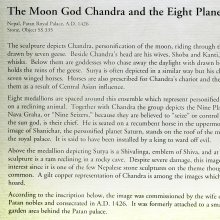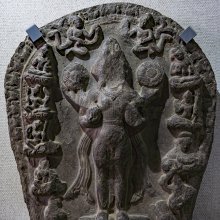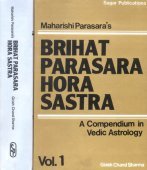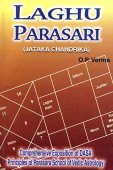Planet: 2 definitions
Introduction:
Planet means something in Hinduism, Sanskrit. If you want to know the exact meaning, history, etymology or English translation of this term then check out the descriptions on this page. Add your comment or reference to a book if you want to contribute to this summary article.
Images (photo gallery)
(+6 more images available)
In Hinduism
Shilpashastra (iconography)
Source: Shodhganga: Elements of Art and Architecture in the Trtiyakhanda of the Visnudharmottarapurana (shilpa)Planets in a painting follow the guidelines of ancient Indian Painting (citra), according to the Viṣṇudharmottarapurāṇa, an ancient Sanskrit text which (being encyclopedic in nature) deals with a variety of cultural topics such as arts, architecture, music, grammar and astronomy.—The Viṣṇudharmottarapurāṇa bears an elaborate description on the process of making the picture of some natural objects and phenomenon. The picture of natural phenomenon like night should be drawn always with the moon, planets and stars. [...]. Thus, the Viṣṇudharmottarapurāṇa addresses various elements of nature, such as the planets, since painting has much connection with time, mood and activity.

Shilpashastra (शिल्पशास्त्र, śilpaśāstra) represents the ancient Indian science (shastra) of creative arts (shilpa) such as sculpture, iconography and painting. Closely related to Vastushastra (architecture), they often share the same literature.
Yoga (school of philosophy)
Source: ORA: Amanaska (king of all yogas): A Critical Edition and Annotated Translation by Jason Birch(The study of) Planets are denoted by the Sanskrit term Graha, according to the Amanaska Yoga treatise dealing with meditation, absorption, yogic powers and liberation.—Accordingly, as Īśvara says to Vāmadeva: “[...] Not by studying the doctrines of scriptural exegesis, logic, planets (graha) and mathematics, nor by the Vedas, Upaniṣads, Dharmaśāstras [and the like]; not even by lexicons nor metre, grammar, poetry nor rhetoric; the sage's attainment of the highest reality is gained only from the oral teachings of his own Guru. [...]”.

Yoga is originally considered a branch of Hindu philosophy (astika), but both ancient and modern Yoga combine the physical, mental and spiritual. Yoga teaches various physical techniques also known as āsanas (postures), used for various purposes (eg., meditation, contemplation, relaxation).
See also (Relevant definitions)
Starts with: Planetree.
Full-text (+2356): Graha, Navagraha, Budha, Rahu, Shukra, Shani, Gaganolmuka, Lohitanga, Maghabhava, Shanaishcara, Ketu, Rodhana, Upagraha, Rinantaka, Mangala, Brihaspati, Kholka, Dvadashamshu, Navadidhiti, Papagraha.
Relevant text
Search found 242 books and stories containing Planet; (plurals include: Planets). You can also click to the full overview containing English textual excerpts. Below are direct links for the most relevant articles:
Brihat Samhita (by N. Chidambaram Iyer)
Chapter 17 - On planetary conjunctions (grahayuddha)
Chapter 20 - On planetary meetings (grahaśṛṅgāṭaka)
Chapter 96 - Omens (11): Supplementary to omens (śākuna-uttara)
A Manual of Khshnoom (by Phiroz Nasarvanji Tavaria)
Karmic Astrology—a Study (by Sunita Anant Chavan)
Part 2.1.5 - Concept of Graha (Planet) < [Chapter 2 - Jyotiḥśāstra and the Concept of Karman]
Part 2.2 - Jyotiḥśāstra in the Brāhmaṇa Period < [Chapter 3 - Development of Jyotiḥśāstra and Karman in the Literature]
Part 2.2.6 - Gaṇita of the Siddhānta Period < [Chapter 2 - Jyotiḥśāstra and the Concept of Karman]
Shrimad Bhagavad-gita (by Narayana Gosvami)
Verse 8.16 < [Chapter 8 - Tāraka-brahma-yoga (the Yoga of Absolute Deliverance)]
Verse 14.18 < [Chapter 14 - Guṇa-traya-vibhāga-yoga]
Verse 4.31 < [Chapter 4 - Jñāna-Yoga (Yoga through Transcendental Knowledge)]
Brihad Bhagavatamrita (commentary) (by Śrī Śrīmad Bhaktivedānta Nārāyana Gosvāmī Mahārāja)
Verse 1.4.113 < [Chapter 4 - Bhakta (the devotee)]
Verse 1.2.50 < [Chapter 2 - Divya (the celestial plane)]
Verse 1.5.101 < [Chapter 5 - Priya (the beloved devotees)]
The Linga Purana (by J. L. Shastri)
Chapter 61 - The situation of the planets (graha-saṃkhyā) < [Section 1 - Uttarabhāga]
Chapter 60 - The Solar Sphere < [Section 1 - Uttarabhāga]
Chapter 54 - Movements of Luminaries (jyotiścakra) < [Section 1 - Uttarabhāga]
Related products
(+15 more products available)











